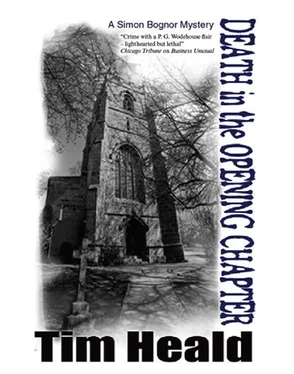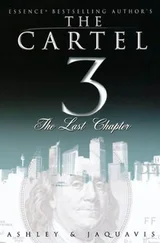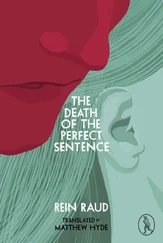Tim Heald - Death in the opening chapter
Здесь есть возможность читать онлайн «Tim Heald - Death in the opening chapter» весь текст электронной книги совершенно бесплатно (целиком полную версию без сокращений). В некоторых случаях можно слушать аудио, скачать через торрент в формате fb2 и присутствует краткое содержание. Жанр: Криминальный детектив, на английском языке. Описание произведения, (предисловие) а так же отзывы посетителей доступны на портале библиотеки ЛибКат.
- Название:Death in the opening chapter
- Автор:
- Жанр:
- Год:неизвестен
- ISBN:нет данных
- Рейтинг книги:5 / 5. Голосов: 1
-
Избранное:Добавить в избранное
- Отзывы:
-
Ваша оценка:
- 100
- 1
- 2
- 3
- 4
- 5
Death in the opening chapter: краткое содержание, описание и аннотация
Предлагаем к чтению аннотацию, описание, краткое содержание или предисловие (зависит от того, что написал сам автор книги «Death in the opening chapter»). Если вы не нашли необходимую информацию о книге — напишите в комментариях, мы постараемся отыскать её.
Death in the opening chapter — читать онлайн бесплатно полную книгу (весь текст) целиком
Ниже представлен текст книги, разбитый по страницам. Система сохранения места последней прочитанной страницы, позволяет с удобством читать онлайн бесплатно книгу «Death in the opening chapter», без необходимости каждый раз заново искать на чём Вы остановились. Поставьте закладку, и сможете в любой момент перейти на страницу, на которой закончили чтение.
Интервал:
Закладка:
Except that for Sir Branwell, it wasn’t.
‘Inconvenient, very,’ he said. ‘If he wanted to top himself, he could surely have waited until after the festival, not to mention his sermon.’
‘If he did kill himself – which seems improbable – then the balance of his mind would have been disturbed, which in turn would have meant that he didn’t give a flying whatsit for the festival or his sermon. Hard to believe but true nonetheless.’ This from Lady Bognor. As always, he thought to himself, the still shrill voice of reason, and yet reason and common sense were strangely inapplicable at times like this. This was what was so often wrong with the English murder. It had become a middle-class affair: sanitized; rendered prim. Even the traditional English funeral – of the sort the Reverend Sebastian would soon enjoy – took place with a closed wooden box. There was no public burning of the body, no eating by vultures, no sense of the catastrophe of death. It was all neat, tidy, orderly, and part of the warp and weft Agatha Christie and the other women had a lot to answer for.
‘What Monica means is that it’s all a bit of a shambles,’ he found himself saying. ‘Of course it’s inconvenient. Dashed inconvenient, you could say, but murder’s like that. Messy.’
Monica gave him one of her looks, in which affection and exasperation were mixed in equal measure, but she said nothing.
‘All I can say,’ said Sir Branwell, handing round plates of charred bird, ‘is that mess is for other people. I don’t do mess. As you should well know, Simon.’
This was perfectly true. Even at Apocrypha, Fludd had been remarkable for his fastidiousness. In an untidy world, he was almost impossibly neat. Even when vomiting after drink, he always managed to make an excuse and find the loo, causing as little trouble as possible. He was like that. ‘ Noblesse,’ he said, rather too often, ‘ oblige.’
‘We’ll try to reduce the mess,’ said Bognor, sounding pompous, aware of the fact, but unable to see a way of seeming otherwise, ‘that’s our job. Or part of it. Lucky that we were here. On the other hand, a very important part of my job is to see that justice is done. And seen to be done.’
The pomposity was on overload. He knew this but could think of no way of diminishing it.
‘Bugger justice!’ said his host, doing it for him.
The roast bird was barely edible and defied identification. Down under it would probably have been roadkill, but in England it was more likely to be Fluddkill, brought down by the squire’s ancient Purdey twelve-bore. The pudding was equally themeless, though it was steamed and came with custard. You didn’t dine at Casa Fludd on account of what the baronet insisted on calling ‘scoff’, although he kept a decent cellar and served perfectly acceptable claret to accompany the execrable food.
Conversation continued to focus on the death of the Reverend Sebastian, but was procedural rather than forensic. The wives did not have particularly strong opinions for once and were, on the whole, content to take their husbands’ side. This was unusual, as was the men’s diametrically opposed opinion. They usually agreed, if only to differ, but, faced with the death of the vicar, they took up very decided positions on either side of the fence.
Sir Branwell was all for tidiness, Bognor for solving the puzzle. Time was when Simon might have agreed with the need for order, but age had not wearied him, nor the years condemned. Instead, he had become zealous in the pursuit of truth. Sir Branwell, on the other hand, was all for truth, provided it didn’t get in the way.
Their disagreement was profound but polite. They had been friends for ever and differences of opinion could not change that. Neither of them wished it. When the apology of a pudding had been cleared away, coffee – weak and tepid – appeared in a pot, along with minute cups, and a carafe of acceptable port began to circulate steadily among the four of them.
It was ever thus.
‘No question of cancelling the festival?’ asked Bognor.
‘Good grief, no,’ said his host, slurping port like the late Keith Floyd, whom in some respects he resembled.
‘Sebastian wouldn’t have wished it,’ said his hostess with enviable certainty. ‘He would have wanted the show to go on.’
‘Then why kill himself?’ asked Lady Bognor, going to the heart of the matter with predictable shrewdness.
‘That’s why I think someone else did him in,’ said Bognor. ‘The late Reverend was not a boat-rocker. He wouldn’t have thrown the entire event into jeopardy, even if he were depressed.’
‘I don’t want bloody journalists sniffing around,’ said Sir Branwell. He pronounced the offending word ‘jawnalists’, as in ‘jaw-jaw, not war-war’. He didn’t like the press, referring with contempt to ‘that little creep Evans’ and ‘that foreign republican Murdoch’. The Bognors agreed in the particular, but not the general. They were for a free press, which, in general terms, they felt the British no longer had. Discuss.
‘You and I are always going to see things differently. If someone killed the reverend, then that’s wrong, and they should be made to pay for it.’
‘Won’t bring him back though,’ said Fludd, not unreasonably, ‘and trying to find the murderer is going to break a whole nest of eggs without, as it were, making an edible omelette.’
‘Brannie’s right,’ said Lady Fludd. ‘A whole lot of journalists crawling all over the place, smuggling themselves into the house in laundry baskets, lives exposed to ridicule or worse, coals raked over, and to no avail whatever. Absolutely no avail whatever.’
‘Quite,’ said her husband.
The port circulated.
‘Not necessarily,’ said Bognor.
‘Not necessarily what?’ countered Fludd, in the manner of an Apocrypha tutor picking up a woolly argument and exposing it for the moth-eaten cardigan it really was.
‘Avail,’ said Bognor. ‘Not necessarily to no avail. The truth availeth and all that. I’m not saying the process will be easy, or even pleasant. These things seldom are. But at the end of the day, we will have a result. Nothing will have been swept under the carpet.’
‘I rather resent the idea that I am sweeping Sebastian under the carpet. I am letting him rest in peace, as he so plainly wished.’
‘I’m not sure that’s what the vicar would have wished. If someone else killed him, then he certainly didn’t. If you really want to know, I think that’s as good a proof as anything that he was murdered. If it were suicide, he’d have chosen almost any other day of the year. He certainly wouldn’t have created a vacuum at the beginning of the festival.’
‘I still think we should avoid undue fuss,’ said Sir Branwell.
‘We don’t do fuss,’ said his wife. They didn’t, either. It was something that Hitler and other would-be invaders didn’t understand about a certain sort of Briton. You didn’t mess with people like the Fludds. They did team teas for the cricket, commanded the Home Guard and didn’t do fuss. Period. Not to be roused. Slow to be so, but dangerous when done. An ancient cliche, but true nonetheless.
‘I think,’ said Bognor, glaring at his port, ‘that I should visit the scene of the crime. You never know what the conventional people may have missed.’
‘We’d all feel happier,’ said Lady Fludd, ‘if we thought everything was in your hands and could be handled by someone like you. Without, you know, fuss.’
‘Quite,’ said Sir Simon. ‘Safe pair of hands.’
His wife would have rolled her eyes under some circumstances, but obviously felt such a gesture was inappropriate in this time and in this company.
‘Church,’ she said. ‘Simon and I had better have a sniff round St Teath’s or whatever. A smell and a bell. Who knows?’
Читать дальшеИнтервал:
Закладка:
Похожие книги на «Death in the opening chapter»
Представляем Вашему вниманию похожие книги на «Death in the opening chapter» списком для выбора. Мы отобрали схожую по названию и смыслу литературу в надежде предоставить читателям больше вариантов отыскать новые, интересные, ещё непрочитанные произведения.
Обсуждение, отзывы о книге «Death in the opening chapter» и просто собственные мнения читателей. Оставьте ваши комментарии, напишите, что Вы думаете о произведении, его смысле или главных героях. Укажите что конкретно понравилось, а что нет, и почему Вы так считаете.












